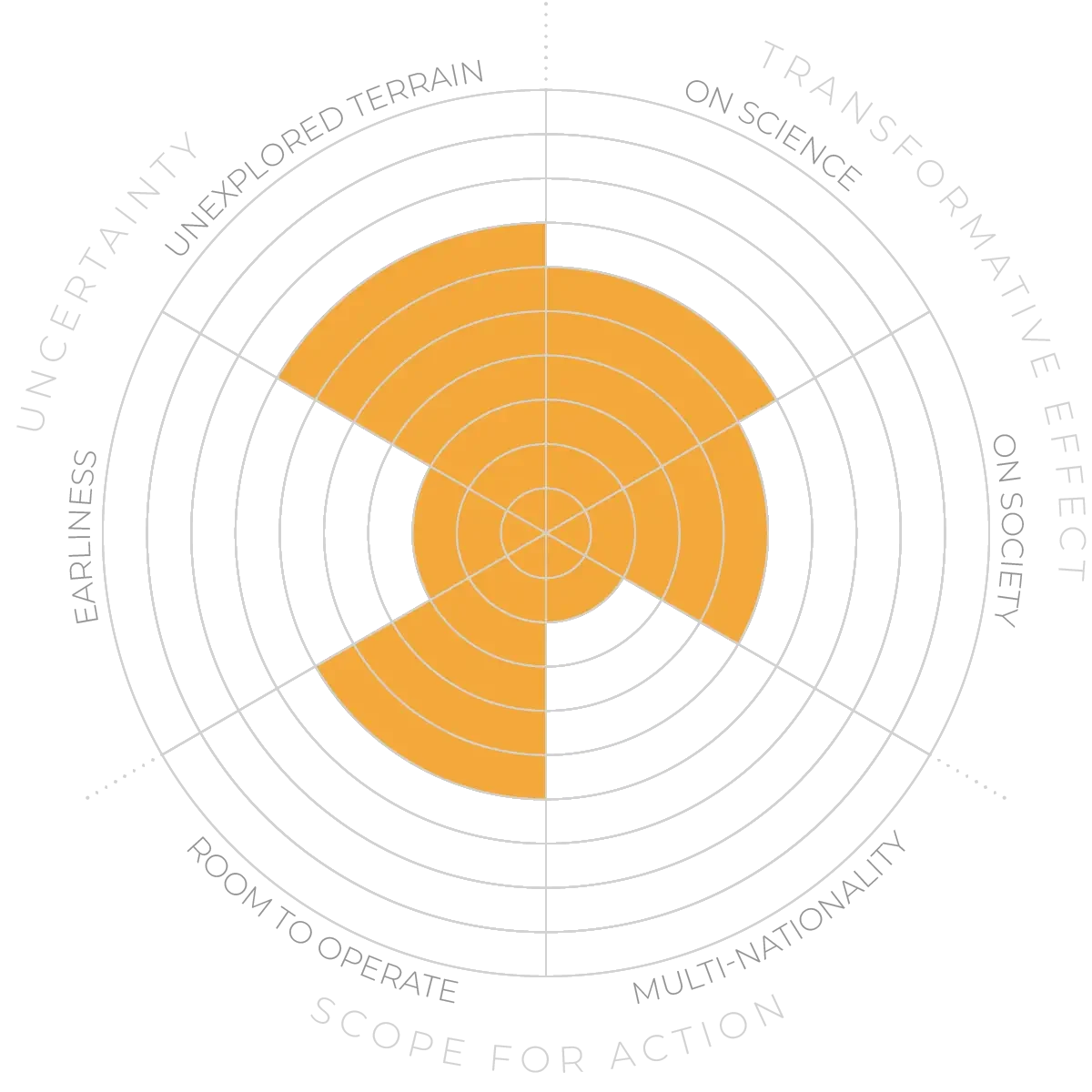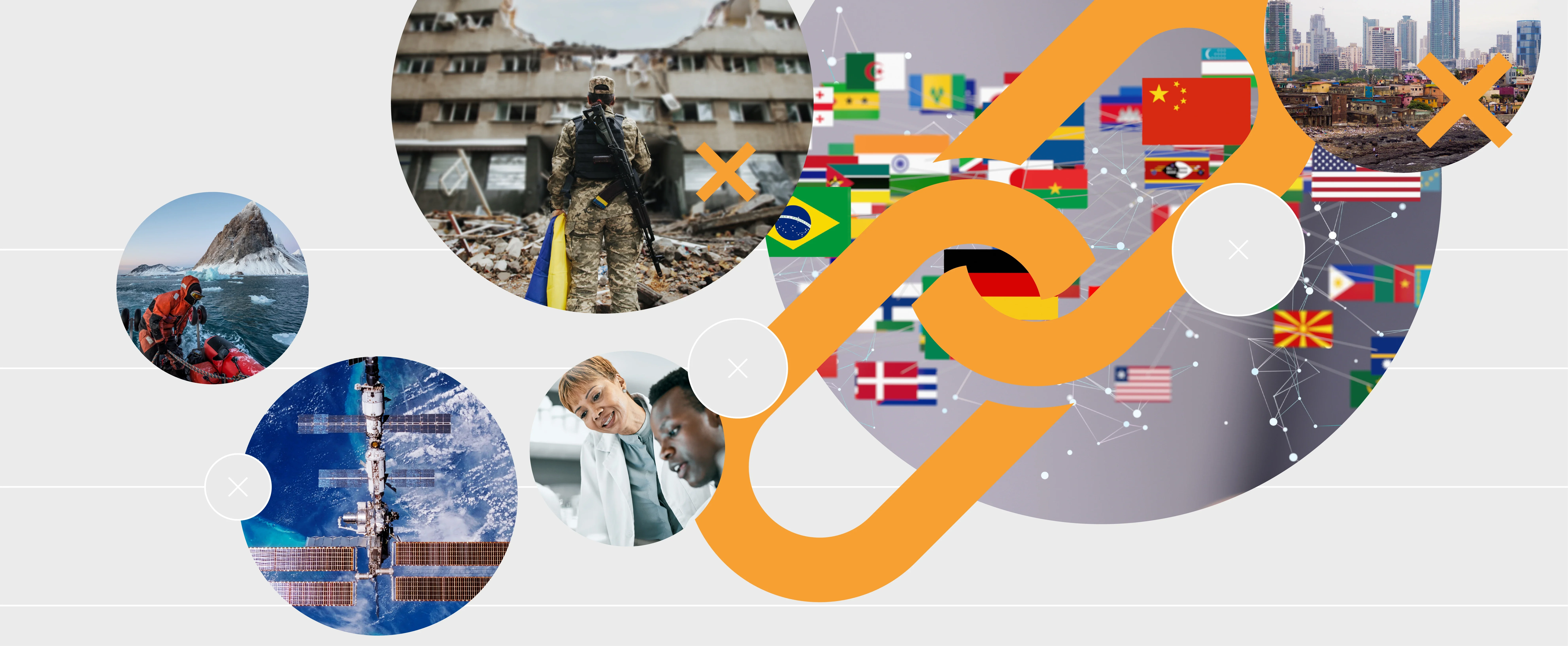Future Horizons:
10-yearhorizon
Science facilities opened up to scientists displaced by conflict
25-yearhorizon
Science diplomacy improves international relations
Science is certainly affected by conflict. The war in Ukraine, for example, has hindered some collaborations between scientists of different nations: because of Russia’s geographical position, these stymied collaborations are having direct effects on Arctic science and are likely to affect protections against exploitation of Arctic resources.9
Science has recently become part of broader policies of sanctions between nation-states, as technology has become an interestingly important element of successful economies. More positively, it may be possible for scientists — working with science-diplomacy resources — to become drivers of positive change, shaping global research to give more equitable benefit from the outcomes of science.
Science diplomacy in an era of conflict - Anticipation Scores
The Anticipation Potential of a research field is determined by the capacity for impactful action in the present, considering possible future transformative breakthroughs in a field over a 25-year outlook. A field with a high Anticipation Potential, therefore, combines the potential range of future transformative possibilities engendered by a research area with a wide field of opportunities for action in the present. We asked researchers in the field to anticipate:
- The uncertainty related to future science breakthroughs in the field
- The transformative effect anticipated breakthroughs may have on research and society
- The scope for action in the present in relation to anticipated breakthroughs.
This chart represents a summary of their responses to each of these elements, which when combined, provide the Anticipation Potential for the topic. See methodology for more information.



